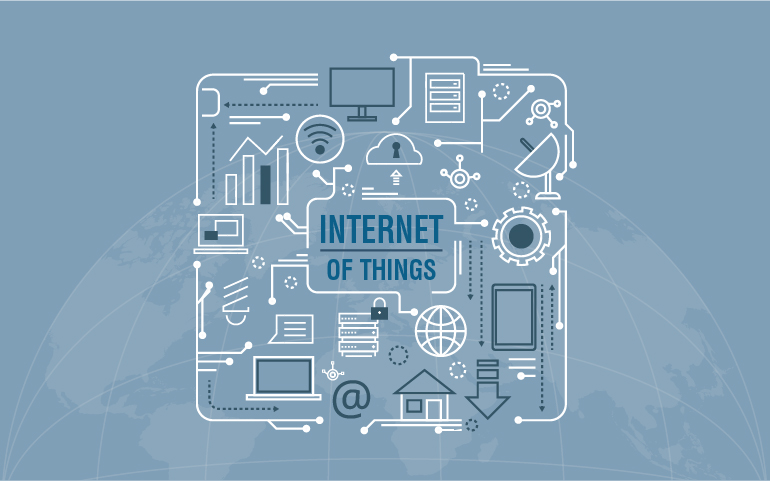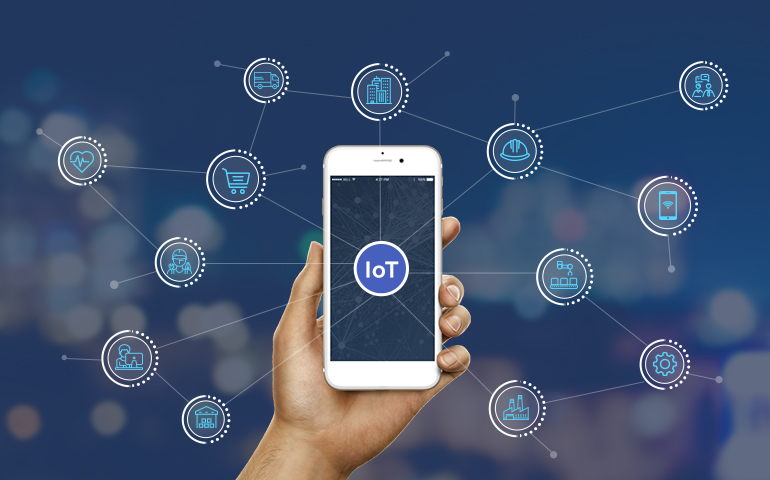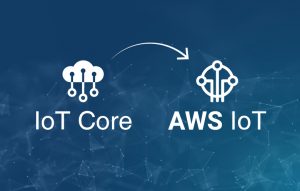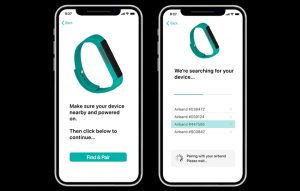What is an IoT Platform and why does my business need it?
Before we hop on to the point that how an IoT platform can elevate an enterprise, allow me to take you through the brief journey of what an IoT platform is and how does it work. An IoT platform is actually a suite of components that enables deployment of apps that monitor, control and manage the devices connected to a common server. The suite also allows the connected device to transmit and collect data from one another. In simpler words, an IoT platform is the data junction of any device connected in an IoT environment.
Well, as of now there are billions of the devices that are connected to the IoT environment and if we go by Gartner’s forecast, the number shall touch the figure of 30 billion connected devices by 2020. As the true value of IoT is being realized, companies are accelerating towards a new “data economy,” where products don’t simply generate direct revenue; they also create valuable data that is funneled back into the organization.
Since now we are aware of what an IoT platform is, let’s try to find out why a business needs an IoT platform. As we have already come across the massive figures of devices that shall be connected to the internet in near future, these figures show a potential growth in the usage of technology and of course the work-load businesses might have faced.
An enterprise ready IoT platform allows businesses to streamline and sync their connected devices in order to generate the insights a business needs to get the desired output. To do so, an Internet of Things platform strategically aligns company’s current and future needs with the following attributes;
IoT Platform Features
Parallel device management
IoT is no longer in its infancy. The number of devices connecting today has reached the seventh sky. As more devices are layered onto the enterprise technology infrastructure, it requires flexible, horizontal device management systems that can seamlessly on-board and off-board devices. An IoT platform organizes and unifies disparate machine-to-machine devices and their virtually limitless end-points.
Maximizes data management
An organization’s IoT ecosystem is a matrix of devices, sensors, gateways, actuators and many others. These devices collect different types of data at different intervals. Now, the data collected needs to be monitored, filtered and processed in real-time to get the desired insights. This variety in data management requires companies to look for Internet of Things platforms that can cleanly separate and manage datasets. This means data that offers no value to the company can be expunged, and data that has a longer shelf life can be collected and saved for processing at another time.
Enhanced security
As our physical world is getting connected to the internet, the risk of compromising our important data has also escalated to a new level. To ward off and any unauthorized access from any device, organizations need to embed IoT security at every level. An IoT platform adds the highest level of encryption in data transmission as well as ensuring the authenticity of each device and gateway explicitly.
Scalability for the future
Well, looking at the potential growth of the IoT trend in the businesses, organizations look for an enterprise ready IoT platform that can scale to meet the pace and magnitude of this growth. An IoT platform can handle the increasing number of the variety of connected devices and also allow the business to generate new revenue streams.
What challenges my business is currently facing
So, now we know that factors that proves the importance of an IoT platform in a business. However, opting and implementing is not an easy beast to tame. A company might have to go through some series of challenges and has to face some serious pain areas to get the desired result from the IoT platform. Let’s have a look at some of these challenges one by one;
Security
As IoT is connecting more devices day by day, the threat of devices and data being compromised is also increasing. The vastness and the variety itself encourage the malware attacks as it provides more decentralized entry points. A less secure device can jeopardize the entire ecosystem and the data flowing in the ecosystem.
Privacy issues
With remote sensors and monitoring a core use case for IoT, there will be heightened sensitivity to controlling access and ownership of data. Granting access to specific devices and data has been always a major concern for the industry. Compliance will continue to be a major issue in medical and assisted-living applications, which could have life and death ramifications.
Complexity and ambiguity
With multiple devices working simultaneously, data collection becomes a tough task in itself. With numerous protocols and large numbers of APIs, integration of IoT platform and testing has become a serious challenge for the business to tackle with. The confusion around evolving standards is slowing down the adoption of IoT. The rapid evolution of APIs consumes unanticipated development that diminishes project teams’ abilities to add new functionality.
Generating insights
The data that is generated in an IoT ecosystem is quite complex to understand. To get actionable insights, the data needs to be processed and brought down in a form that can be understood by anyone who has the authority to access the device. Visualizing the data is also another aspect that proves to be challenging in the business.
These are some of the challenges that businesses around the globe are facing today. So, what can be done? How can one overcome these challenges? And most importantly, how can one use an IoT platform in his business to get the desired result?
What are the features of an IoT platform that can elevate my business?
An IoT platform will enable you to connect assets, machinery and vehicles, embed sensors and tags, and establish an internet-enabled connection to transmit data and remotely monitor and control the ecosystem. An enterprise ready IoT platform consists of various components in form of tools, technologies, SDKs, and protocols that support the variety of IoT solutions. With the following features, IoT platform can prove its worth in any vertical of a business.
Real-time monitoring and analytics
An enterprise ready IoT platform allows businesses authorities to monitor, process and analyses their factory, assets or production lines in real-time. This provides the businesses to maintain the flow of their business up and running in order to generate desired output. An IoT platform offers this feature in following way;
- Live graphical charts
- Extensive real-time streaming analytics
- Analytics applications
- Connectors for data visualizations
Multi-layer security
As we saw that how an IoT ecosystem is at risk just by its own vastness and complexity. An IoT platform acts as a firewall for the entire IoT ecosystem providing an additional layer of security to your connected devices. It offers security features such as:
- Access security using device identity management
- Protocol transmission over TLS
- Application security including multi-factor authentication
Data collection protocols
Another important aspect which needs attention is the types of protocols used for data communication between the components of an IoT platform. An IoT platform may need to be scaled to millions or even billions of devices (nodes). Lightweight communication protocols should be used to enable low energy use as well as low network bandwidth functionality.
Cross-device communication
An enterprise ready IoT platform supports communication across multiple devices. If sensors are already configured on the IoT platform, one can access reports from anywhere using web services and APIs on any iPad, iPhone or desktop.
These are some of the many features of an IoT platform that supports the uplifting of a business. If implemented correctly, these features can offer an ample amount of benefits. So, why don’t we take a walk through the list of benefits of an enterprise ready IoT platform?
What benefits does my business get from an enterprise ready IoT platform?
Below are the 7 benefits that an enterprise ready IoT platform offers to a business.
Historical analytics
An IoT platform offers the previous data to the respected authorities supporting them to predict any future. This involves the collection and analysis of a massive amount of historical industrial data. The past operational data help build a predictive model to generate futuristic insights and enhance operations on the shop floor or in the field.
Operational analytics
There are some use cases where businesses have to take actions immediately based on real-time data because a fraction of a second can make a huge difference, for example, a wind turbine, aircraft engine, etc. An enterprise ready IoT platform has capabilities to perform real-time analytics that allows business to detect problems in real-time, optimize performance and prevent sudden damage.
Integration with the existing infrastructure
Industrial applications have different requirements, thus they cannot be built with a traditional approach. Typically, developers can spend very less time in innovation since 80% of their time is spent in integration and upgradation. An IoT platform features advanced tools and services that will decrease the amount of time spent on integration.
Microservices – building next-generation, scalable apps
Unlike the traditional monolithic app architecture, enterprises can build and scale industrial apps more efficiently by leveraging different building blocks that are developed and delivered as discrete services with an IoT platform. Furthermore, the platform’s standalone and reusable software modules provide a level of isolation, enable small teams of developers to work on specific services and facilitate continuous delivery and releases while keeping the rest of the application stable and available.
Predictive maintenance
Based on the information collected from data and past events, companies can avoid sudden breakdowns, increase equipment availability, and reduce repair and maintenance costs. Event-based failure prediction depends on the past events and machine performance whereas sensor-based failure prediction is based on the information that sensors deliver in real-time. The information can be about machine performance or deviation detected in any part.
Uninterrupted monitoring
An enterprise IoT platform delivers comprehensive visibility through continuous monitoring at every layer to maintain security. Real-time monitoring also helps businesses to prevent data loss and detect abnormal activities. The platform also provides you with options to implement controls at application and data layers.
Security
An IoT platform provides enterprises with a secure software development environment to handle the incursion of big data properly, create secure workflows, dynamically test applications and APIs throughout the development process, and track the performance metrics of applications. It also helps enterprises to detect any suspicious behavior and identify all potential risks that could affect their project, which eventually helps reduce the possibility of malware.

What is currently trending in the market of an IoT platform
- Application programming interfaces (APIs) and a sound strategy around them is becoming increasingly important to enterprises tapping into IoT.
- IoT platforms are receiving a great amount of attention in 2017 as most major IoT players rolled one out in one form or another.
- The IoT platform market is projected to grow at a Compound Annual Growth Rate (CAGR) of 40% through 2020.
- Over 1,000 companies use an IoT platform to support their IoT strategies and to create new business value in a smart, connected world.
- In the next five years, IoT platforms will manage the interoperability of around 35 billion newly connected devices and their ~44 zettabytes of generated data.
- More than three hundred IoT platforms are available today, most of them are relatively new and often still under development. They differ by technological depth, segment-focus, and technology implementation offering.
How an IoT platform can help me elevate my business
Enterprises have been collecting and archiving a huge amount of data for many years, but latest innovations and technologies like IoT, data science, and predictive analytics enable more productive use of the data by retrieving hidden insights and making sense out of it to bring in transparency, improve efficiency, increase system throughput, avoid sudden machine failures, and enhance customer experiences. An IoT platform provides businesses with the infrastructure required to connect their assets, collect data and analyze it in detail. This is achieved by facilitating device communication and management while adhering to industry-grade security protocols.
Below are some values that an IoT platform adds to a business;
Remote devices with easy configuration
An IoT platform helps you get rid of security risks and compatibility hurdles by enabling easy configuration. It lets you register and pair your devices easily to the platform without coding.
Connect unlimited things
One can connect an unlimited number of sensors, gadgets, and equipment to the IoT platform. Moreover, a business can scale up its IoT deployment as your requirement changes with the growing business.
Smart rules for smart notifications
One can easily create smart rules for connected devices and get notified on mobile devices. Through the real-time dashboard, an enterprise ready IoT platform facilitates asset tracking and remote management and control.
Optimal asset utilization
An IoT platform improves tracking of assets using sensors and connectivity, which helps organizations benefit from real-time insights. Organizations could easily locate issues in the assets and run preventive maintenance to improve asset utilization.
Elevated efficiency
An IoT platform can centralize the operation of any department of an industry and bring the employees, staff and management on the same page resulting in better co-ordination and elevated efficiency in the functioning.
Conclusion
This leads us to the end of our journey of about enterprise ready IoT platforms and how they can be the trump card of success for any business. In the end, it can be concluded that implementing IoT in an organization is not an easy job and it involves many challenges as you go along – from idea to product. An IoT platform will enable you to connect assets, machinery and vehicles, embed sensors and tags, and establish an internet-enabled connection to transmit data and remotely monitor and control the ecosystem.








